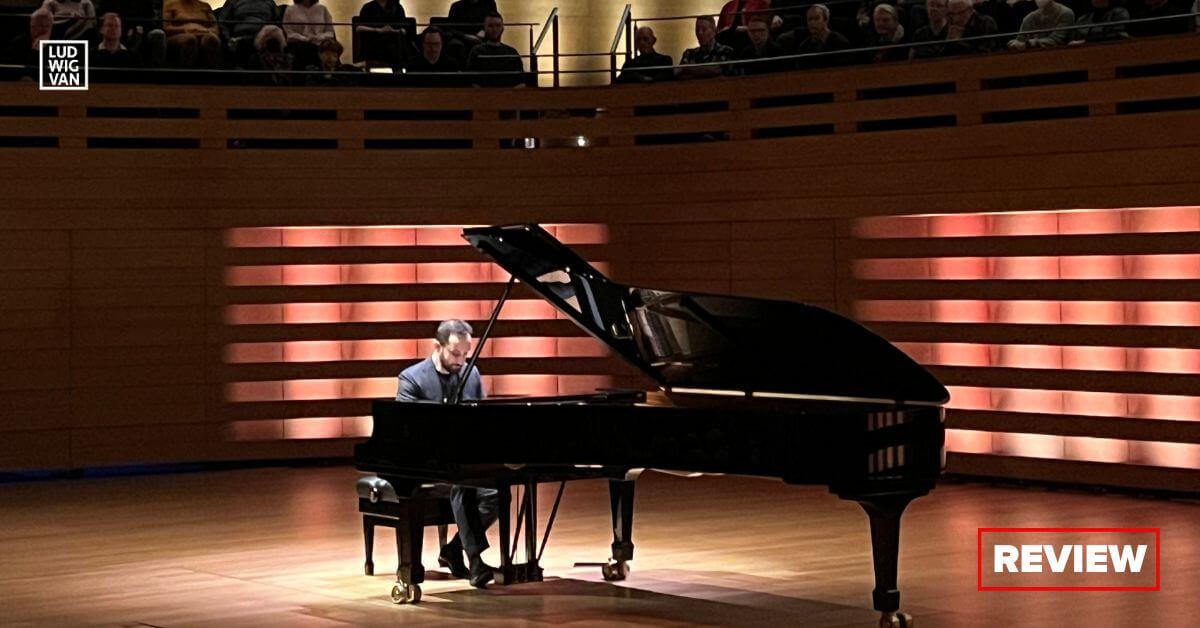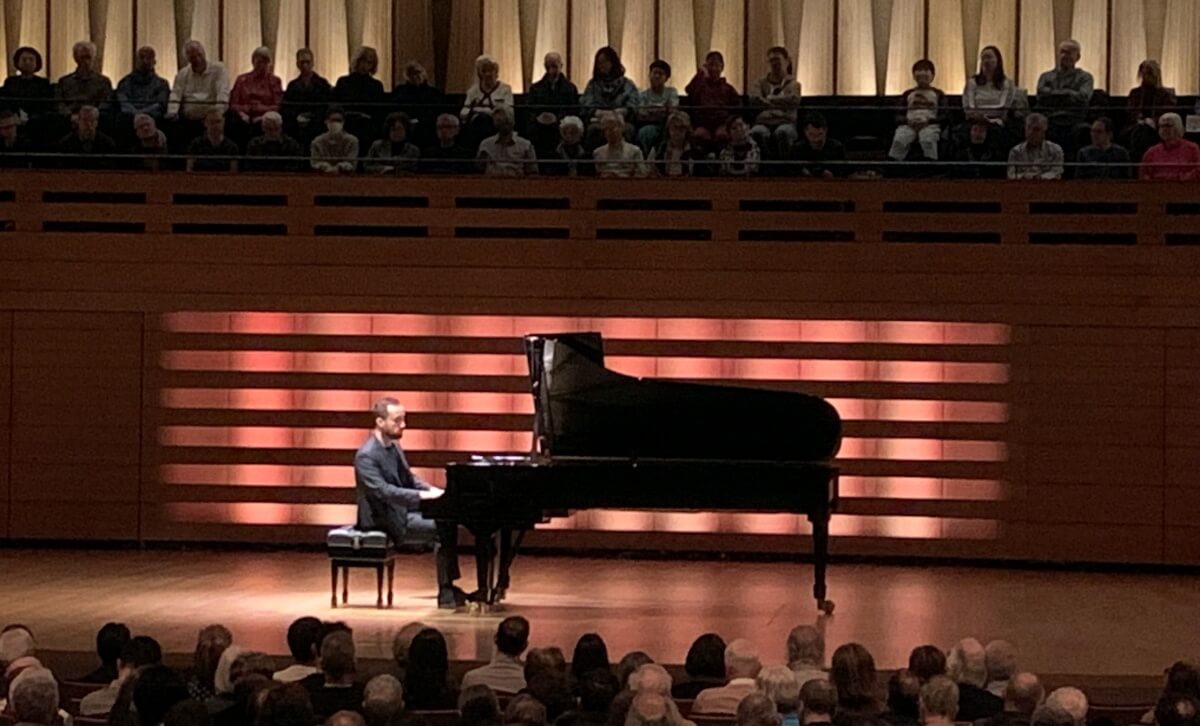
Igor Levit, piano. Hindemith: Suite 1922. Mahler: Adagio from Symphony No. 10 (transcr. Ronald Stevenson). Beethoven: Symphony No. 3 (“Eroica”) (transcr. Liszt). Koerner Hall, March 10, 2024. Presented by the Royal Conservatory of Music.
Transcriptions of orchestral works for solo piano occupy more historical shelf space than is commonly supposed. Most were published for household use. Many still do yeoman’s service as study aids. On Sunday in Koerner Hall, the Russian-born German pianist Igor Levit made a partly successful case for their deployment as works to be heard in recital.
I say partly because Beethoven’s Third Symphony (“Eroica”) proved to be more piano-friendly than the Adagio from Mahler’s Tenth. The earlier score, on the cusp of romanticism in music, is propulsive and colourful; the latter, nearing its sunset, long-breathed and heavy-laden.
The is not to say the 25-minute Adagio (in a transcription by the late Scottish composer-pianist Ronald Stevenson) offered nothing to savour. It was intriguing to hear this heartfelt music in something like blueprint form. Harmonies were clear and rhythms precise. Even the lonely opening melody for violas — devoid of expressive markings — seemed suitably plainspoken on the piano.
The much-discussed dissonant climax of this movement (Mahler’s last in finished condition) was another matter. Effortful tremolos were a poor substitute for the cutting brass and high violins of the original. Nor were dance elements done justice, as Levit banged out first beats insistently. Happily, he summoned a delicate atmosphere in the coda. Mahler, in the final minutes, prevailed.
Beethoven, after intermission, was both more fruitful and less problematic. Even the opening theme of this symphony is sustained by a pulse that adapts itself well to the keyboard.
Colours were vivid. Counterpoint was playful in the development of the first movement and sforzando chords had thrust. Left-hand figures in the Funeral March evoked drumtaps. While it could not be said that the oboe and flute were not missed in the C Major episode, Levit shaped their rising lines songfully.

The Scherzo, with its crisply scampering thirds, suited the piano well. Triads in the Trio sounded hornlike and robust. If the variations of the Finale stretched the capacity of the instrument to the limit, this was all part of the fun. Levit’s performance was a tour de force. Credit is owing also to Liszt, who knew a thing or two about the transcriber’s art.
The program began with music actually written for the piano, Hindemith’s Suite 1922, a five-movement opus dating from the title year. Apart from the delicate Nachtstück, this was dense and lugubrious stuff, performed accordingly — and from memory. Levit played the slow-moving Mahler from a tablet that he operated himself, but chose sheet music and an old-fashioned page-turner for the Beethoven.
The big crowd gave him a standing ovation, perhaps hoping to hear an encore. The enthusiasm was in part a response to Levit’s appealingly relaxed stage deportment. He seemed to be a ready wit, to judge by the chuckles his comments aroused from those close enough to hear him.
It is interesting to think that Levit made his Koerner Hall debut (on his 37th birthday) without playing any standard piano repertoire. Do solo-piano transcriptions of symphonies have a future in the concert hall? Probably not. Much as there was to enjoy in this Eroica, I left the hall with a hunger to rehear the matchlessly inspiring original.
Some transcriptions, of course, work better than others. I notice that the prolific German transcriber Otto Singer (1833-94) produced a solo-piano version of Richard Strauss’s An Alpine Symphony. Any takers?
Are you looking to promote an event? Have a news tip? Need to know the best events happening this weekend? Send us a note.
#LUDWIGVAN
Get the daily arts news straight to your inbox.
Sign up for the Ludwig Van Toronto e-Blast! — local classical music and opera news straight to your inbox HERE.
- SCRUTINY | Moussa Concerto Sounds Strong In Toronto Symphony Orchestra Premiere, Paired With Playful Don Quixote - April 4, 2024
- SCRUTINY | Esprit Orchestra At Koerner Hall: Ligeti 2, Richter No Score - April 1, 2024
- SCRUTINY | Sibelius & New Cello Concerto By Detlev Glanert Offers A Mixed Bag From The TSO - March 28, 2024



